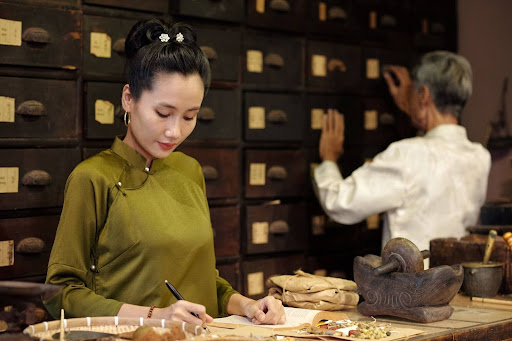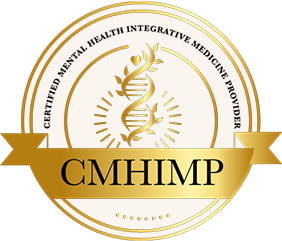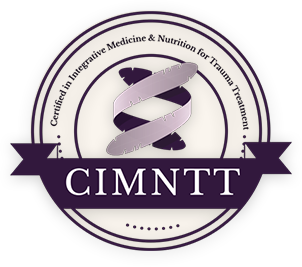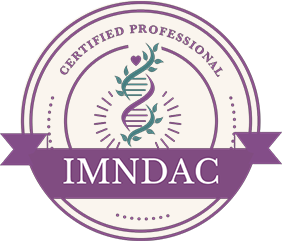Certification
Exploring the Potential of Herbal and Botanical Medicine in Cancer Treatment: A Focus on New Innovations and Traditional Practices
Recent advancements in herbal medicine are offering promising alternatives and complementary approaches to cancer treatment. From the innovative use of herbal medicine-derived exosome-like nanovesicles to traditional Chinese herbal therapies, new research is highlighting their potential role in combating various forms of cancer, including intestinal, breast, and colorectal cancers.

Numerous scientific research centers around the globe—in India, Europe, and Asia—have long conducted research on herbal medicine. More recently, several medical institutions in the United States have established research centers dedicated to exploring herbal medicine for both chronic diseases, such as cancer, and acute illnesses. Some of this translational research is now being applied in treatment protocols at integrative cancer centers, such as the Cancer Care Alliance. In 2025, my non-profit was awarded a grant to publish two special issues of a journal devoted to Women’s Traditional Medicine, including ethnobotany and research and practice in herbal medicine.
Among the universities and institutions conducting research on herbal and botanical medicine are:
Memorial Sloan Kettering Cancer Center (MSKCC) – Integrative Medicine Service
MSK’s About Herbs database and its Herbal Formulations in Cancer Supportive Care program provide evidence-based reviews of traditional Chinese medicine (TCM) formulas used to manage chemotherapy- and radiation-related side effects. Their pharmacists and clinicians continually evaluate clinical trial data on formulas such as PHY-906 (Huang-qin-tang) for diarrhea and fatigue, and Bu-zhong-yi-qi-tang for mucosal protection.
MD Anderson Cancer Center – Integrative Medicine Program
Under the direction of Dr. Lorenzo Cohen, this program conducts both symptom-management tool development (e.g., the MDASI-TCM patient-reported outcomes module) and clinical trials surveying TCM use among cancer patients. A 2012 study on attitudes toward TCM therapies in a Chinese cancer hospital and validation of TCM symptom modules exemplify their work.
Bastyr University Research Institute – Integrative Oncology Research Center
Investigators at Bastyr, including Dr. Leanna Standish, have led NIH-supported studies on intravenous artemisinin (from Artemisia annua) combined with vitamin C, intravenous curcumin, and traditional mushroom extracts (e.g., turkey tail) as adjuncts in the treatment of breast, prostate, and other cancers. The institute has also published reviews on Chinese herbal protocols for preventing secondary breast cancer.
UCSF Osher Center for Integrative Health – Integrative Cancer Care
The Osher Center provides group visits and individual consultations that integrate diet, mind-body practices, acupuncture, and botanical therapies—including TCM herbal formulas—to support patients during treatment and survivorship. The center also collaborates on clinical protocols to evaluate the safety and efficacy of these therapies.
University of Washington – Integrative Oncology Guides
The University of Washington’s oncology integrative clinic and its partnership with Fred Hutchinson Cancer Center have produced clinical guidelines for the timing and use of specific Chinese herbal formulas (modernized TCM prescriptions) to mitigate chemotherapy- and radiotherapy-induced toxicities, focusing on circulation-enhancing and immunomodulatory botanicals.
National Center for Natural Products Research (NCNPR)
University of Mississippi, Oxford, MS. Established in 1995, NCNPR is the nation’s premier university-affiliated center devoted to the discovery, development, and quality control of natural products—including botanicals used in pharmaceuticals and dietary supplements—through multidisciplinary research in pharmacognosy, analytical chemistry, pharmacology, and toxicology.
Ric Scalzo Institute for Botanical Research
Sonoran University of Health Sciences, Tempe, AZ. A molecular biology and phytochemistry laboratory dedicated to developing and improving botanical therapeutics in collaboration with industry and academic partners.
WHO Collaborating Centre for Herbal Medicines
College of Pharmacy, University of Illinois at Chicago, Chicago, IL. One of 27 WHO-designated Collaborating Centres worldwide, this center focuses on the standardization, quality assurance, and safety evaluation of herbal medicines.
Arizona Center for Phytomedicine Research (ACPRx)
College of Pharmacy, University of Arizona, Tucson, AZ. A NIH-CARBON-funded Center of Excellence (2001–2005) that investigated the chemistry, bioavailability, mechanisms of action, and efficacy of botanicals such as turmeric, ginger, and boswellia for inflammatory conditions.
Research Institute at Bastyr University
Bastyr University, Kenmore, WA & San Diego, CA. Since 1986, the institute has supported evidence-informed research across traditional, complementary, and integrative health sciences, including clinical and preclinical studies of botanical medicines and natural therapies.
Plants for Human Health Institute (PHHI)
North Carolina State University, Kannapolis, NC. PHHI conducts in vitro, in vivo, and clinical research on phytochemicals derived from fruits, vegetables, and other crops to understand their roles in human health and disease prevention.
Tags: cancer, cancer treatment, botanical medicine, herbal medicine, traditional Chinese medicine, exosome-like nanovesicles, nanotherapy, immunomodulation, TLR4 signaling, dendritic cells, colorectal cancer, breast cancer, intestinal cancer, colorectal cancer
Interested in Learning More?
- Course(s): Diabetes Type 2, Cognitive Decline, and Alzheimer’s
- Course(s): Food as medicine
- Book(s): Natural Woman: Herbal Remedies for Radiant Health at Every Age and Stage of Life
Research Glossary
Research has its own vocabulary. To help you decipher research, I created a Glossary to ease the way. You may access it here: Research Glossary
Referenced Research Publications
International journal of nanomedicine
2024, July 25
DOI: 10.2147/IJN.S477270
Herbal Medicine-Derived Exosome-Like Nanovesicles: A Rising Star in Cancer Therapy
Abstract
Plant-derived exosome-like nanovesicles (PDNVs) are small nanoscale vesicles containing lipids, RNAs, proteins and some plant natural products secreted by plant cells. Over the last decade, PDNVs have garnered significant interest due to its exceptional therapeutic benefits in the treatment of various diseases. Herbal medicine, as a medicinal plant, plays an important role in the treatment of diseases including cancer. Especially in recent years, the function of herbal medicine derived exosome-like nanovesicles (HMDNVs) in the treatment of cancer has been widely concerned, and has become a research hotspot of nanomedicine. In this review, the biological characteristics, functions and the therapeutic advantages of PDNVs are reviewed, as well as the recent achievements and research progress of HMDNVs in cancer treatment, demonstrating its enormous promise as a cancer therapy, and new insights are provided for future research and development of anti-tumor drugs.
Keywords: cancer treatment; extracellular vesicles; herbal medicine; nanomedicine; plant-derived exosome-like nanovesicles.
© 2024 Chu et al.
Reference
Chu, K., Liu, J., Zhang, X., Wang, M., Yu, W., Chen, Y., Xu, L., Yang, G., Zhang, N., & Zhao, T. (2024). Herbal Medicine-Derived Exosome-Like Nanovesicles: A Rising Star in Cancer Therapy. International journal of nanomedicine, 19, 7585–7603. https://doi.org/10.2147/IJN.S477270
Molecular cancer
2024, October 01
DOI: 10.1186/s12943-024-02135-3
Chinese herbal medicine for the treatment of intestinal cancer: preclinical studies and potential clinical applications
Abstract
Intestinal cancer (IC) poses a significant global health challenge that drives continuous efforts to explore effective treatment modalities. Conventional treatments for IC are effective, but are associated with several limitations and drawbacks. Chinese herbal medicine (CHM) plays an important role in the overall cancer prevention and therapeutic strategies. Recent years have seen a growing body of research focus on the potential of CHM in IC treatment, showing promising results in managing IC and mitigating the adverse effects of radiotherapy and chemotherapy. This review provides updated information from preclinical research and clinical observation on CHM's role in treatment of IC, offering insights into its comprehensive management and guiding future prevention strategies and clinical practice.
Keywords: Anti-cancer effects; Chinese herbal formulae; Chinese herbal medicine; Clinical application; Intestinal cancer.
© 2024. The Author(s).
Reference
Zhang, J., Wu, Y., Tian, Y., Xu, H., Lin, Z. X., & Xian, Y. F. (2024). Chinese herbal medicine for the treatment of intestinal cancer: preclinical studies and potential clinical applications. Molecular cancer, 23(1), 217. https://doi.org/10.1186/s12943-024-02135-3
Pharmaceutical biology
2024, May 30
DOI: 10.1080/13880209.2024.2359105
Traditional Chinese medicine for breast cancer treatment: a bibliometric and visualization analysis
Abstract
Context: The use of traditional Chinese medicine (TCM) for breast cancer patients inhibits tumor cell growth and proliferation, alleviates adverse reactions, and inhibits tumor recurrence and metastasis post-surgery. An assessment of its historical efficacy and an examination of the latest research trends are imperative to thoroughly leverage the potential of TCM for breast cancer treatment.
Objective: This study analyzes the published literature on TCM for breast cancer treatment using bibliometric analysis to determine the current state, identify hot spots, and discern trends, providing insight into research in this field.
Methods: TCM-based breast cancer treatment publications between 2003 and 2022 were retrieved from the Web of Science, China National Knowledge Infrastructure, Wanfang, and Duxiu databases. Visual analysis was performed using VOSviewer (V1.6.19) and CiteSpace (V6.3.R1) software. Examined metrics included the annual publication count, literature and journal, national and institutional contributions, author co-occurrence, keyword co-occurrence, keywords timeline, and keywords with citation bursts in this research field.
Results and conclusion: A total of 1080 English publications and 2617 Chinese publications were included in the analysis. China was the leading contributor of publications. High-frequency keywords such as 'apoptosis', 'expression', 'in vivo', 'chemotherapy', 'triple-negative breast cancer', and 'lymphedema' were identified from English and Chinese publications; 'epithelial mesenchymal transition' and 'network pharmacology' emerged as hotspots. The development of modern science, technology, and in-depth research can result in broader prospects for the research and application of TCM in breast cancer treatment, resulting in more effective solutions for the treatment of breast cancer and other malignant tumors.
Keywords: Apoptosis; chemotherapy; expression; lymphedema; proliferation; triple-negative breast cancer.
Reference
Yuan, J., Liu, Y., Zhang, T., Zheng, C., Ding, X., Zhu, C., Shi, J., & Jing, Y. (2024). Traditional Chinese medicine for breast cancer treatment: a bibliometric and visualization analysis. Pharmaceutical biology, 62(1), 499–512. https://doi.org/10.1080/13880209.2024.2359105
Frontiers in immunology
2024, September 19
DOI: 10.3389/fimmu.2024.1408474
Traditional Chinese herbal medicine: harnessing dendritic cells for anti-tumor benefits
Abstract
Chinese Herbal Medicine (CHM) is being more and more used in cancer treatment because of its ability to regulate the immune system. Chinese Herbal Medicine has several advantages over other treatment options, including being multi-component, multi-target, and having fewer side effects. Dendritic cells (DCs) are specialized antigen presenting cells that play a vital part in connecting the innate and adaptive immune systems. They are also important in immunotherapy. Recent evidence suggests that Chinese Herbal Medicine and its components can positively impact the immune response by targeting key functions of dendritic cells. In this review, we have summarized the influences of Chinese Herbal Medicine on the immunobiological feature of dendritic cells, emphasized an anti-tumor effect of CHM-treated DCs, and also pointed out deficiencies in the regulation of DC function by Chinese Herbal Medicine and outlined future research directions.
Keywords: Chinese herbal medicine; anti-tumor; dendritic cells; immunity; maturation.
Copyright © 2024 Shen, Li, Wang, Xiang and Xie.
Reference
Shen, M., Li, Z., Wang, J., Xiang, H., & Xie, Q. (2024). Traditional Chinese herbal medicine: harnessing dendritic cells for anti-tumor benefits. Frontiers in immunology, 15, 1408474. https://doi.org/10.3389/fimmu.2024.1408474
Molecules (Basel, Switzerland)
2025, June 07
DOI: 10.3390/molecules29122727
The Role of Natural Products from Herbal Medicine in TLR4 Signaling for Colorectal Cancer Treatment
Abstract
The toll-like receptor 4 (TLR4) signaling pathway constitutes an intricate network of protein interactions primarily involved in inflammation and cancer. This pathway triggers intracellular signaling cascades, modulating transcription factors that regulate gene expression related to immunity and malignancy. Previous studies showed that colon cancer patients with low TLR4 expression exhibit extended survival times and the TLR4 signaling pathway holds a significant role in CRC pathogenesis. In recent years, traditional Chinese medicines (TCMs) have garnered substantial attention as an alternative therapeutic modality for CRC, primarily due to their multifaceted composition and ability to target multiple pathways. Emerging evidence indicates that specific TCM products, such as andrographolide, rosmarinic acid, baicalin, etc., have the potential to impede CRC development through the TLR4 signaling pathway. Here, we review the role and biochemical processes of the TLR4 signaling pathway in CRC, and natural products from TCMs affecting the TLR4 pathway. This review sheds light on potential treatment strategies utilizing natural TLR4 inhibitors for CRC, which contributes to the advancement of research and accelerates their clinical integration into CRC treatment.
Keywords: TLR4 pathway; biochemical process; colorectal cancer; inhibitors; traditional Chinese medicine.
Reference
Luo, Y., Zhang, G., Hu, C., Huang, L., Wang, D., Chen, Z., & Wang, Y. (2024). The Role of Natural Products from Herbal Medicine in TLR4 Signaling for Colorectal Cancer Treatment. Molecules (Basel, Switzerland), 29(12), 2727. https://doi.org/10.3390/molecules29122727
















